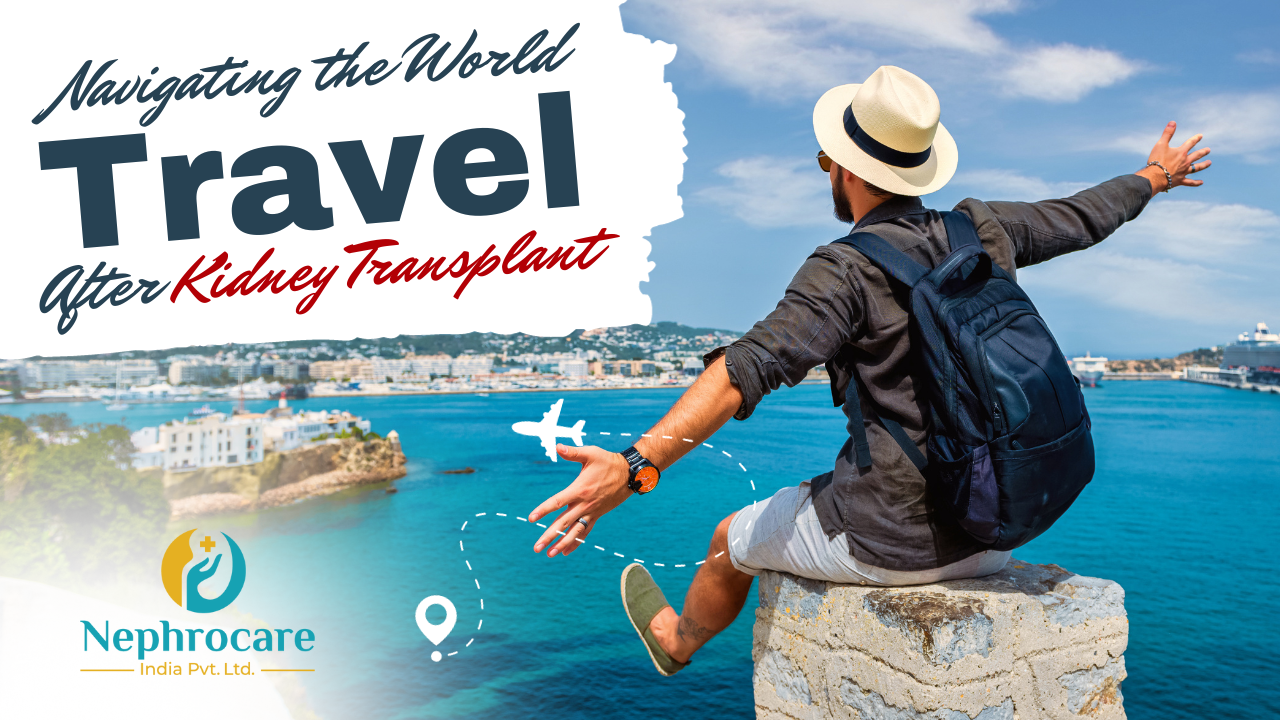
Amit Neogy, an adventurous guy after a successful kidney transplant, desired the thrill of travel. He always ‘wanted to make memories all over the world’ but also knew that his newfound life came with unique considerations. But Amit wasn’t the only one facing the challenge of travel after kidney transplant. Sashi, a dedicated business executive, had a demanding job that occasionally required him to travel. The transplant journey was slightly complicated for him. He needed to learn when he could travel and what precautions were necessary to keep up with his job’s demands. On the other side, Mrs. Chakraborty’s only son lives in Washington. Her soul was crying to see her grandchildren, to touch them once but couldn’t achieve that confidence to travel through the globe after her renal transplant.
All of them had frequent health check-ups for the first four to six months after transplant, so going away was infeasible. Amit, Sashi, and Mrs. Chakraborty all realized that understanding the delicate path to know when they could travel is crucial as it presents the risks for transplant recipients, especially for those who have to travel for work.
This will navigate you through the details of travel after kidney transplant, helping you plan a trip with peace of mind.
A comprehensive health check-up which is the passport ensuring you that you are fit for travel, is essential before you plan for any trip. This assessment typically includes a kidney functioning test, blood pressure monitoring, immunosuppressant medication adjustments, and general health stability to identify the potential risks.
Understanding the potential travel risks is crucial for all transplant recipients like Amit, Sashi, and Mrs. Chakraborty for a safe and enjoyable trip:
Therefore educate yourself on how to navigate these potential pitfalls.
After mapping down your travel plan consult your transplant team for guidance regarding vaccination.
Whether you need any pre-travel vaccinations depends on your destination, the time since the transplantation, and the risk of catching a particular disease. If you’re on immunosuppressive therapy, you should not take live vaccines whereas, inactive vaccines and their booster doses are safe for your optimized protection. Although it’s always better to take vaccines six months after the transplant when anti-rejection medicine doses are lower.
Amit, Sashi, and Mrs. Chakraborty were traveling for different purposes. All of them dealt with the medication puzzle.

Discover the beauty of staying healthy while exploring the world or remaining at the top of your game during work trips. Keep these points in your mind:


Amit, Sashi or Mrs. Chakraborty’s journeys were not just about seeing the world; it was about discovering themselves and living life to the fullest. With some extra precautions and careful planning, they continue to explore, creating beautiful memories with dear and near ones and successful careers across the globe. So, follow in their footsteps, pack your bags, get your travel checklist ready, embrace the world, and let your wanderlust take flight with confidence!
